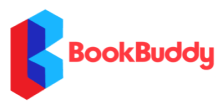The job search can be a daunting journey, and receiving an interview is only half the battle. Preparation is key to be able to best get your foot in the door, and here are some ways to better your chances of earning a spot on the company’s roster.
Prepare Responses
Preparing for interviews will make sure that you’re spouting intelligent response after intelligent response, keeping your confidence high and your anxiety low. You most likely don’t know exactly what will be asked, but it’s easy to anticipate some common questions for an interview.
Behavioral interview questions help the interviewer gain a better idea of how you reacted to a specific situation, such as: worked on a stressful project, had to problem-solve, or used extensive time management. Whenever you work on a big task, add it to a list you can use as an example in an interview. Be sure to emphasize the results of your actions. It is important to know what qualifications are required for the position, so you can best stress how you’re a great match for those skill sets.
Clear Your Head
The hour before an interview should be as stress-free as you can possibly make it. This means no interviews after an exam or trying to squeeze in a friend’s birthday lunch beforehand. This time should, instead, be used to review responses you have prepared and make sure that you have everything in place. Did you print out a copy of your resume? Did you dress properly? Do you know exactly where you are going and who you are meeting with?
Have at Least One Strong Question Prepared
At the end of an interview, you will always be asked if you have any questions. This can be a make-or-break point of the hiring process, without candidates even knowing it. A great question can show how interested you are in the job, leaving the interviewer impressed with your performance. Make sure you actually care about what the answer is. Interviewers will be able to easily tell if you seem disinterested.
Adjust to the Interview Style
Many companies run informal interviews. They will sit you with a current employee, who will casually ask you questions to gauge if you are a good fit with the culture. Others will conduct behavioral interviews, which discuss your past actions. They will determine your fit based on the actions you took and their results. Employers also use case interviews, in which they give you a problematic situation to solve, and you’ll be evaluated based on your solution.
Most likely, the interviews you attend will be a mix. If the interview is leaning more informal, initiate small talk and find some common ground. If the hiring manager seems to be asking behavioral questions from a list and meticulously taking notes of your answers, stick to impressing them with confidence and quality examples.
Gratitude Can Go a Long Way
Many hiring managers will admit that their decision ultimately came from a candidate being the only one of the interview process to follow up after the interviews were conducted. A “Thank you” email 24-48 after the email is always a good idea. Be sure to include details from your conversation with them, why you’d be a good fit, and thank them for their time.
Preparing for interviews is half of the race. All that’s left to do is go in and finish the process. These tips will help ensure you get your foot in the door when it comes time to execute.


